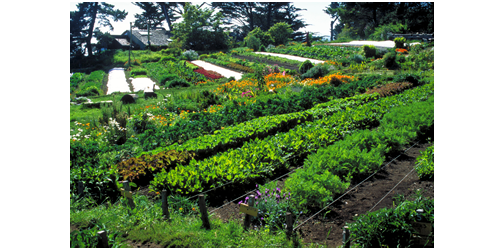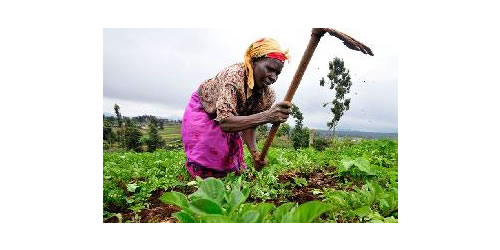Farming: the natural health service

The challenges
With increasing pressure on our natural resources due to a growing global population hungry for a more Western-style diet and a significant increase in urbanisation and consequently a more sedentary lifestyle, the challenges of Non-Communicable Diseases are rising with a global annual cost of some US$3.5 trillion. Indeed here in the UK, with around 64% of adults overweight or obese (a staggering increase from 29% in 1993), the cost of addressing type 2 diabetes, heart disease and certain cancers as well as issues relating to self-esteem and mental health is estimated to be £5 billion (direct costs) and £16 billion (indirect costs) annually. This is not sustainable and adds to the pressure on our natural resources – we are living beyond the means of our planet to support us. We need to reduce the pressure on our land, soil, water and biodiversity through our farming, our purchasing habits and our diets.
Our farming
The agricultural systems that have been built up over the past few decades have contributed greatly to alleviating hunger and raising living standards; they have served the purpose, but only up to a point. Our current food system is largely driven by economic demand and production possibilities, not nutritional goals. Thus, to be successful in the future we require agriculture systems that focus as much attention on developing and integrating nutritional goals and opportunities to improve health as they do on economic demand or production possibilities. This will help address the issue of the growing dietary related diseases across the globe by improving the nutritional value of food and providing new opportunities for farmers to benefit, both in the field and in the market place.
Since 1991 LEAF has been developing and promoting more sustainable food and farming. It works with farmers, the food industry, scientists and consumers to inspire and enable sustainable farming that is prosperous, enriches the environment and engages local communities. Specifically, this is through the adoption of Integrated Farm Management, a sustainable farming system that brings together the best of modern technology alongside the best of traditional methods. Crucially, the aim is to balance economic viability with environmental health and social responsibility. LEAF works with farmers and growers encouraging change through knowledge exchange events at our network of LEAF demonstration farms, management tools and guidelines. Furthermore through the independent, externally verified, environmental farm assurance system, LEAF Marque, LEAF offers farmers the opportunity to add value to their business in the marketplace and offers consumers affordable, yet responsible, purchasing. Indeed LEAF Marque provides a fully transparent and traceable food assurance system, allowing everyone along the food chain, from farm gate to plate, to be confident that the food has been produced to high environmental standards. LEAF Marque is one of the fastest growing farm assurance schemes and over 25% of UK fruit and veg is now LEAF Marque certified.
LEAF also organises Open Farm Sunday and Open Farm School Days, where the general public are invited on to farms to discover the story behind their food. Every year some 380 farms open up their gates and along with some 10,000 helpers, welcome around 210,000 people into the countryside on one day. Since it began in 2006 over 1.25 million members of the public have attended these Open Days.
LEAF is about linking the environment and farming. This link is critical, but perhaps not recognised widely enough. With increasing focus placed on addressing food security, global population growth and climate change, there are growing fears that the environment will lose out. Just 30 crops dominate global agriculture, providing some 90% of the calories consumed by the world’s human population. This is a very small fraction of the 270,000 known species of higher plants, of which 10-15,000 are edible with around 7,000 used in agriculture. In the livestock sector, just 14 animal species currently account for 90% of all livestock production (UNEP 2007).
We must not forget the importance of the environment and biodiversity to our production systems and vice versa. We rely on biodiversity in our daily lives, often without realising it. It underpins a wide range of services, many of which are currently undervalued, including bacteria and microbes which transform our waste into useable by-products, insects that pollinate our crops and the biologically rich landscapes that provide enjoyment, health and well-being. Fifty percent of all species in Europe rely on agricultural habitats to survive. Therefore, it is essential that farming systems are sustainable and more diverse; we need fully integrated systems which take into account the interdependency of our environment with food production.
Our purchasing habits
Only 10 meal choices make up the nation’s regular meals on a weekly basis. So for my study I chose the pizza as a proxy for the average meal eaten by the majority of families during the week. Furthermore, it provided a focus for some key commodities produced in the UK, namely wheat and cheese, and also brought in tomatoes, where a lot of nutritional work has been carried out. While there are some exciting developments in increasing the fibre content of wheat through plant breeding, reducing the saturated fats in cheese, enhancing the anthocyanin levels in tomatoes and improving soil management, it is evident that there are currently limited opportunities for farmers to improve the nutritional value of our food. Much of the reformulation of food is post farm gate within the processed food sector. Food legislation in the Western world is becoming increasingly restrictive with regards to nutritional claims and could hold back potential growth of this market. Indeed, developments in pizza products range from a perfectly nutritionally balanced pizza developed by Eat Balanced and a number of pizza recipes which all meet nutritional targets for a healthy meal (30% of one’s daily intake) and also contain 30% of vitamin and mineral needs, through to the 3-D printed pizza developed by NASA! The majority of food we eat does not represent the food that the farmer grows – and that is the challenge.
I also looked at behaviour change and the opportunities around community approaches to encourage healthier lifestyles. Many programmes and campaigns to change eating habits have met with costly, disappointing shortterm results. Although campaigns to drive increased consumption of fruit and veg have a high profile and the Change4Life initiative and the responsibility deal have seen reductions in sugar consumption, more can and needs to be done. Such campaigns are not new, indeed during World War II a Committee on Food Habits was established in the US. It addressed the perceptions of change looking to balance encouraging and discouraging forces (barriers and incentives). It was important to first remove the reasons why people should say ‘no’ before giving them nutritional or patriotic reasons to say ‘yes’. Any efforts to change behaviour need to take into account the fact that unless barriers to consumption are removed, promotional incentives would be wasted.
Our diets
Good nutrition is the foundation for human health and well-being, physical and cognitive development and economic productivity. Nutritional status is a critical indicator of overall human and economic development; good nutritional status is an essential social benefit in its own right. Conversely, malnutrition both through hunger and overeating creates huge problems. Most cases of obesity are caused by eating too much and moving too little. If you consume high amounts of energy from your diet but do not burn off the energy through exercise and physical activity, the surplus energy is turned into fat. Obesity does not just happen overnight – it develops gradually from poor diet and lifestyle choices. It is important to develop approaches that are achievable and are delivered in bite sized pieces. In the short-term delivering reformulated food that offers ‘health by stealth’ can be beneficial against the backdrop of a long term thorough, more integrated approach.
Over the last year almost every day there has been a new report providing dietary and health based advice. Only recently Sheffield University identified six different types of obese people and suggested that targeting by type may be an effective way of dealing with obesity. Whilst this continues to highlight the challenge, it is clear that the confusion of messages and advice to consumers about issues relating to health, obesity, type II diabetes and cardiovascular disease do not result in behaviour change. With a headline global target set by The World Health Assembly of ‘A 25% reduction in premature mortality related to Non- Communicable Diseases by 2025’, there is a lot to be done as a matter of urgency.
The role of food is much more important than just sustenance, particularly in different parts of the world. Factors such as taste enjoyment, wholesomeness and integration with society, culture and family life, are equally important. It is crucial that we get this balance right as we move forward. More research, technology and development are essential and bold leadership is needed now to develop a culture able to involve citizens in improving diets and nutrition.
So where next?
We all have a part to play in developing a long-term plan for sustainable diets. The food security debate is not just about more food – it is about better nutrition and more food in the right place. The challenge is a large one and I believe needs to be delivered in a staged way. In the short term, reformulation of processed food is going to be critical and this is already underway to a degree, through the Responsibility Deal run by government in partnership with industry. However, this will have no bite if it is not implemented alongside new breeding programmes and research on new and diverse crops. More needs to be done to achieve an informed and cohesive approach to our personal relationship with food and its production. Education and communication opportunities, such as those delivered through LEAF’s Open Farm Sunday, Open Farm Schools Days and Healthy Food Week, as well as better partnerships between nutritionists, breeders, researchers, consumers, retailers and farmers are essential. Strategic and long term food policy around health and nutrition needs to be put in place while building up new markets for farmers, effectively linking Defra with the Departments for Health and Education.
Health and well-being is an issue we know we should be doing something about but we have not integrated it sufficiently in to ‘how we do business’. There is no silver bullet to reducing obesity; it is a complex issue that requires action at individual, family, local and national levels. We can all play our part in this by eating a healthy, balanced diet and being more active. The development of new technologies will also be part of the answer. The role of science in food must become more important at all stages of the supply chain from the genetics of crops and livestock right the way through to innovations in the home.
Source: fstjournal.org




